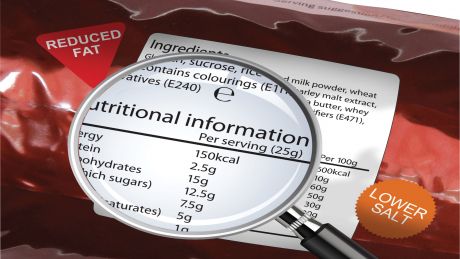What food labels really mean
Here's what the catchy food labels that make products sound super healthy really mean.

The Consumers’ Association is currently lobbying the EU for a crackdown on all misleading food terms. In the meantime, be on your guard against the following:
Authentic, fresh, home-made, natural, original, pure, traditional
Although each of these terms conjures up positive images, none is currently defined in law, although the FSA is looking into developing a set of standards.
Bio
The term ‘bio’, frequently applied to yoghurts, has no official meaning.
Detox
Has no official definition and can mean whatever the manufacturer wants. Remember to beware of miracle claims. If a product had medicinal properties, you’d be buying it over the counter at the pharmacy, not in the supermarket aisle.
Flavour and Flavoured
The word ‘flavour’, as in ‘raspberry flavour’, means that there is no raspberry in the product. Only if you see the word flavoured can you be sure the named fruit is in the product. But some products containing as little as 0.5 per cent strawberry powder are still, legally, strawberry flavoured.
Free from…
Can be misleading. For example, a bottle marked ‘alcohol-free’ can, legally, contain up to 0.05 per cent alcohol. If you want to know what is or isn't present in a particular food, the FSA suggests you read the ingredients list carefully.
Light/lite
There is no official definition of what this means and it is not even covered by voluntary guildelines. It’s a good way of selling products that don’t make the strict low fat criteria. It’s just as meaningless when misspelled.
Low fat/lower fat
Should mean less than 3g of fat per 100g of product. ‘Lower fat,’ however, just means 25 per cent lower than a comparable version of the same product.
No added sugar
The important word here is ‘added’ because it simply means that the food has not had sugar added to it as an ingredient. This doesn’t mean it will have a low sugar content. A product with a ‘no added sugar’ label may contain artificial sweeteners or natural sugars from fruits.
Per Cent Fat Free
A product that’s 90 per cent fat free is 10 per cent fat. Not so attractive now, is it?
Reduced calorie
Must be 25 per cent lower than the usual version of the same product.
Unsweetened
Unsweetened usually means that no sugar or sweetener has been added to the food but it doesn’t mean that it contains no sugar.
For more expert nutrition advice, subscribe to Men's Fitness magazine. We'll give you five issues for £5.
Sign up for workout ideas, training advice, reviews of the latest gear and more.
Coach is a health and fitness title. This byline is used for posting sponsored content, book extracts and the like. It is also used as a placeholder for articles published a long time ago when the original author is unclear. You can find out more about this publication and find the contact details of the editorial team on the About Us page.

